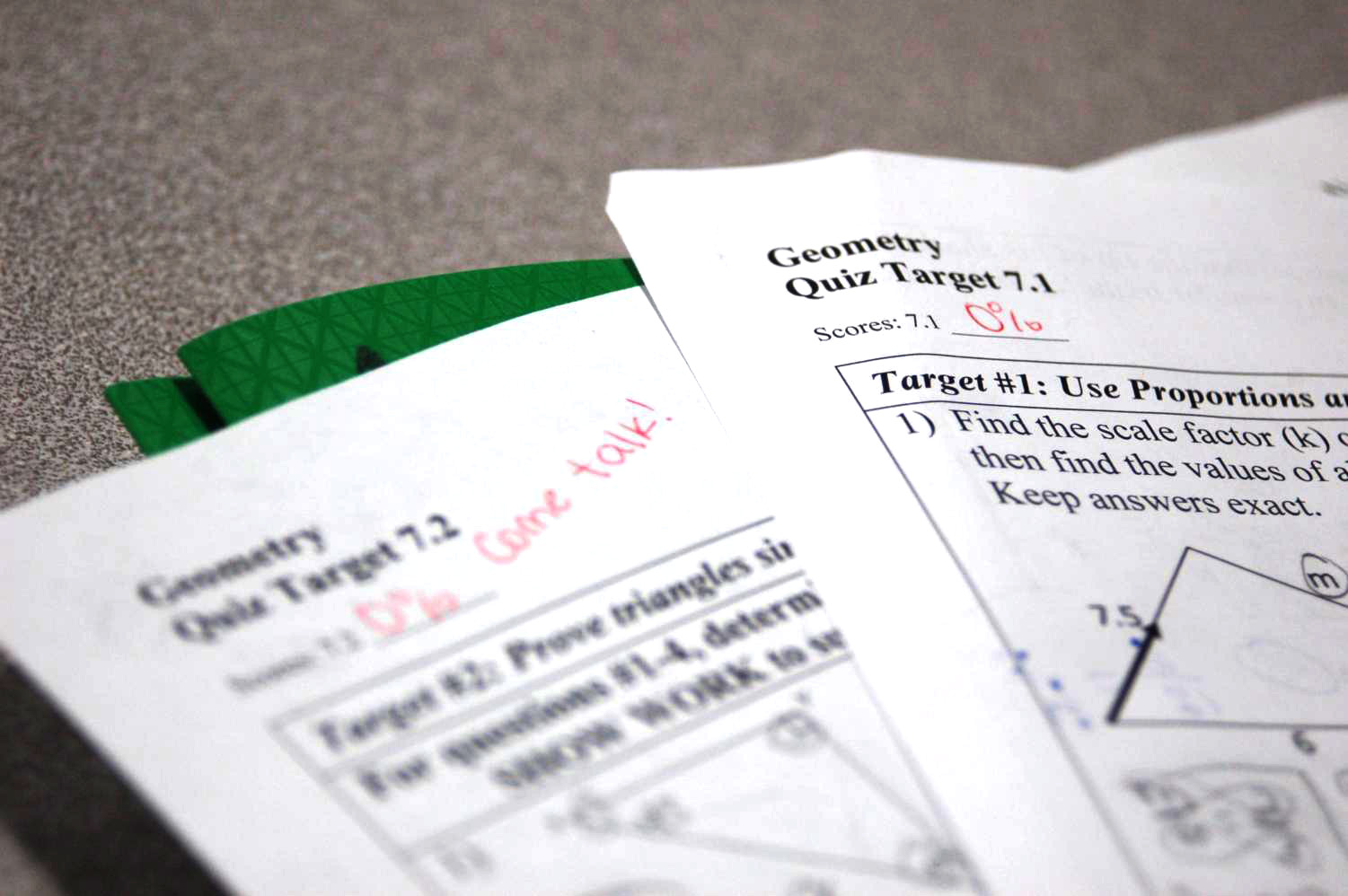
Recognition:
"Cut it out" (IJEA, Best of SNO)


Freshmen grades dipped substantially during MCHS's hybrid year, but have still not bounced back to pre-COVID numbers
February 25, 2022
A freshman student opens Schoology to countless alerts of missing work. They’ve been trying to raise the failing grade that’s been fluctuating all semester, trying to improve it. Balancing all their classes is hard enough especially while taking honors biology and math. Assignment due dates are missed, tests aren’t going well, and the stress is taking over, leaving the student more unmotivated than ever.
In order to graduate from MCHS a student needs to have 24 credits in MCHS specific courses. A student has to earn six credits a year in order to be on track to graduate. Failing a class leaves a student to play catch up in order to graduate on time. Cruising by in school with failing grades will prevent students from graduating. Many see freshman year as a make-or-break year to graduating, so students must start off on the right foot.
“I failed a class and it was not fun,” said freshman Sky McCafferty in reflecting on failing her Honors Geometry course. “I never failed a class before, so I didn’t know what was the next step…I kinda felt helpless because it was too late to turn in anything. I really couldn’t do anything besides studying for the final.”
In the first semester of 2019, freshman in the class of 2023 had a D/F (59 percent or lower) rate of 11.41 percent; that rate jumped to 21.76 percent in the first semester of 2020 for the class of 2024 online freshman students. This year that number has begun to fall again but not nearly back to what it was before the pandemic. In the first semester of 2021, class of 2025 freshman had a D/F rate of 16.89 percent.
“We know that this is a pandemic,” said freshman school counselor JR Bocian, “and we know students are struggling whether that be with mental health issues, motivation, or academic issues. I know the district has done a good job of trying to provide those supports. It’s how we then take it the next step further and try to encourage kids to really utilize those supports.”
MCHS offers many supports to students, especially freshmen, as part of the purpose for the Freshman Campus was to promote student success. These programs include Paper, a 24/7 program students can work with a tutor to get extra help or have to look over their writing, Learning Forward, the Drop-In-Center, and time during AIM.
“[By using these programs, we are] trying to eliminate those barriers to connect students with extra help,” said Bocian.
In the end it comes down to the amount of effort and work the students are willing to put in themselves.
“So actually it’s not so much the honors and AP classes that have the high number of failures, believe it or not,” said Bocian. “It’s actually more of the core like regular track courses.”
Freshman year is critical. MCHS wants students to get off to the right start because, if students get off on the right start, they’re more likely to graduate and find success.
“A lot of kids are struggling in regular courses this year,” said science instructor Samantha Donelson. “I’m not quite sure as to why. In honors there’s less of a struggle because I think those kids generally have more grit and determination, so they are pushing through the challenges a little bit more successfully than the regular kids.”
In the first semester of 2018, class of 2022 freshman had obtained A’s at 24.47 percent compared to first semester students in 2021, class of 2025 freshman had obtained A’s at 33.80 percent. Data from 2021 has revealed that many students are succeeding greatly or failing and that gap between students has widened in recent years.
“I think that a general state of apathy is the main reason why students are not achieving success in the classroom,” said Peter Byrne, dean of students at the Freshman Campus. “A common theme amongst students is that they “really don’t care” about much of anything, and I think that has a much greater impact on student grades at the freshman campus…Many students are doing everything expected of them in the classroom and are thriving academically. The apathy is what is concerning: if students don’t care and don’t take an active role to complete work, then how do we as educators motivate them?”
The class of 2025 did not have much reliable data to reference for placement data when they transitioned into high school as a direct effect of COVID-19 pandemic and navigating online school. Students were placed in classes based on teacher recommendation and few data points,
“Looking at the success rate of certain classes from the first semester…we have seen a rise in the total number of failures,” said Bocian. “Whether or not that’s class specific or overall, the overall failures number has gone up.”
“Looking at that data again,” Bocian continued, “not knowing where kids were last year and the year before that and how that’s impacted their learning…We’re really trying to unpack that information by meeting with students and trying to figure out what happened last semester, and what we can do differently this semester to get students back on track.”
Freshman year is the first year of a students’ high school career, and they will face repercussions for failing a class. Credits will have to be made up during summer school, credit recovery courses, or get ahead courses. This also limits students’ choice of electives they may want to take in order to simply get to the total credit needed to graduate.
“We’re really trying to convey this message to students that if you’re not successful in your classes, you really need to utilize summer school to get back on track because otherwise the train comes off the tracks pretty early and then you’re playing catch-up,” said Bocian. “You’re not having study halls; you’re missing out on opportunities to be in electives because you have to take required courses. It’s just this domino effect that really impacts your entire high school experience.”
Students can request to have a level change. A level change is where students can switch from taking an honors or AP course to move down to a regular course, or the other way around.
“I would say there’s probably more kids moving down than moving up,” said Bocian, “but there are still kids moving up. We definitely have these conversations to try to adjust the schedule so that we’re not overwhelming students, because that’s the last thing we really want to do. We want students to be challenged, but we want to challenge them appropriately so that they’re not overwhelmed. I think that is always at the forefront of these discussions.”
In high school, freshmen are to transition to a new environment and new concepts within the grade book regarding weighted grading scale, finals, and a weighted GPA. The transition to high school, let alone the transition to high school coming off after two years through online school and a pandemic, can be overwhelming to students.
“The thing we talk about all the time,” said Assistant Superintendent of Learning & Innovation Carl Vallianatos, “and I think the Freshman Campus is going to help us, is how do we help kids as early as we can understand that there’s consequences and you have to get the credits? You have to work.”
The effects of online school through navigating the pandemic has impacted students because they missed out on three semesters of schooling. Accountability and access to resources in regards to cheating was hard to monitor, engage those students, and connect them to teachers and support.
“Ultimately they [students] have to put in the time outside of school, and when they don’t have that support, it’s going to impact their grade,” said Donelson.
The student logged into Skyward to view their report card for the first semester. As it loaded they awaited nervously to see what their final grades were. The big F appeared on the screen for their core classes of math and biology. They had never failed a class, and they didn’t know what the next steps were to take. The next day, they were called down by their counselor to navigate their next moves in hopes of graduating with the needed credits they missed this semester.
